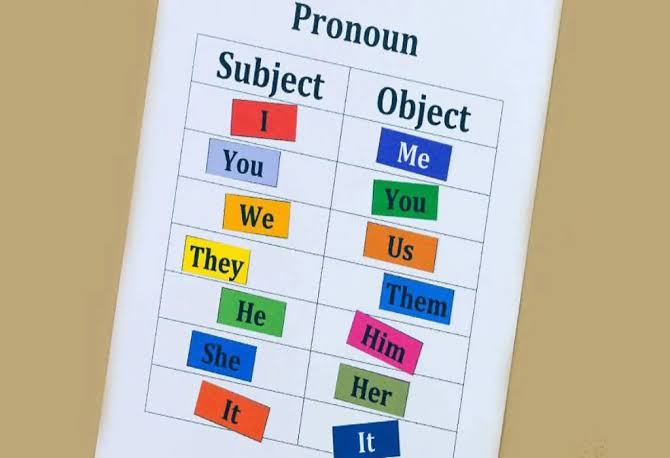
support@yorubalibrary.com
+2348073529208, 07038599574

In our previous lesson, we talked about Building Yoruba Vocabularies. Today, we shall proceed in our free Yoruba lessons by learning Yoruba pronouns and their usage.
Pronouns are essential tools in any language, serving as substitutes for nouns and simplifying sentence structure. In Yoruba, pronouns play a crucial role in communication, helping to avoid repetition and making conversations more fluid and flexible. 
In this lesson, we will explore the various types of Yoruba pronouns and demonstrate their usage through practical examples and conversational scenarios. Understanding these pronouns will greatly enhance your ability to speak and comprehend Yoruba effectively.
TYPES OF PRONOUNS
Yoruba pronouns can be categorized into three main types:
(i) Subject pronouns
(ii) Object pronouns
(iii) Possessive pronouns.
Each type serves a distinct purpose in sentence construction. Let us explain each of these types in details and their examples one after the other.
(i) SUBJECT PRONOUNS (Àwọn Ọ̀rọ̀ Orúkọ Oluwa):
a)These pronouns indicate the person or thing performing an action.
b) They typically appear at the beginning of a sentence.
c) Examples of subject pronouns are:
Mo (I)
O (You - singular)
Ó (He/She/It)
A (We)
Ẹ (You - plural)
Wọn (They)
Practical Example: Mo lọ sí ọjà. (I went to the market.)
(ii) OBJECT PRONOUNS (Àwọn Ọ̀rọ̀ Orúkọ Abo):
a) These pronouns indicate the person or thing receiving the action.
b) In Yoruba, object pronouns are often incorporated into the verb or follow the verb.
c) Due to the structure of the Yoruba language, Subject pronouns can be occasionally used interchangeably with object pronouns. Context is very important.
Practical Example: Mo rí o. (I saw you.)
(iii) POSSESSIVE PRONOUNS (Àwọn Ọ̀rọ̀ Orúkọ Agbamora):
a) These pronouns indicate ownership or possession.
b) They usually follow the noun they modify.
c) To show possession, the pronoun is placed after the noun.
Practical Example: Ọkọ̀ mi (My car)
To solidify your understanding, let’s explore how these pronouns are used in conversational contexts.
(A) Subject Pronouns in Action:
i) "Ó ń ṣiṣẹ́." (He/She is working.)
ii) "A fẹ́ jẹun." (We want to eat.)
iii) "Wọn ti dé." (They have arrived.)
B) Object Pronouns in Action:
i) "Mo gbọ́ o." (I heard you.)
ii) "Ó rí mi." (He/She saw me.)
C) Possessive Pronouns in Action:
i) "Ìwé mi nìyẹn." (That is my book.)
ii) "Ilé re tóbi." (His/Her house is big.)
iii) "Àwọn ọ̀rẹ́ mi wà níbí." (My friends are here.)
Key Points to Remember:
• Pay attention to the context to determine the appropriate pronoun usage.
• Practice using pronouns in various sentence structures to improve fluency.
• Listen to native Yoruba speakers to grasp the nuances of pronoun usage.
Conclusion:
Mastering Yoruba pronouns is essential for effective communication. By understanding the roles of subject, object, and possessive pronouns and practicing their usage in conversational contexts, you can enhance your fluency and comprehension. Remember that consistent practice and exposure to the language are key to mastering these fundamental building blocks. Keep practicing, and you’ll soon be using Yoruba pronouns with confidence and accuracy.
Fun Activity:
Write 10 conversational examples of subject, object and possessive pronouns.

Learn about the Yoruba concept of Ìwà Pẹ̀lẹ́ (good…

Learn special praises for Divine Being and Creator…